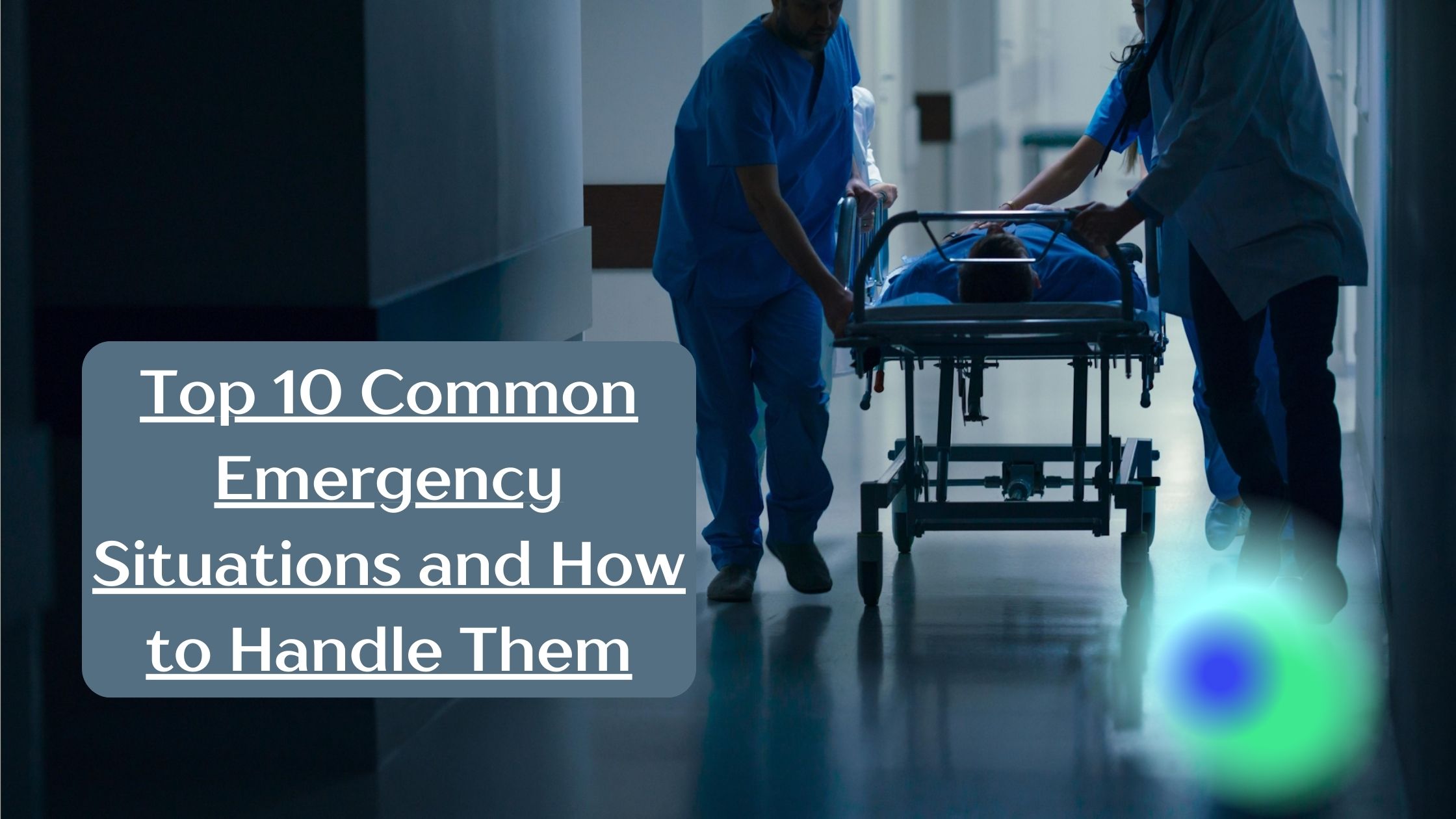Emergencies can strike without warning, leaving us vulnerable and unsure of what to do. Whether it’s a natural disaster or a sudden health crisis, knowing how to respond can make all the difference. Below are the top 10 common emergency situations and practical steps you can take to handle them effectively.
1. Medical Emergencies
Medical emergencies, such as heart attacks, strokes, or severe allergic reactions, require immediate attention.
How to Handle:
- Call 911: Contact emergency services immediately.
- Perform CPR: If the person is unconscious and not breathing, perform CPR until help arrives.
- Use an EpiPen: For severe allergic reactions, administer an EpiPen if available.
2. Fires
Fires can spread rapidly and cause significant damage to property and life.
How to Handle:
- Evacuate Immediately: Exit the building as quickly as possible. Do not use elevators.
- Use a Fire Extinguisher: If the fire is small and contained, use a fire extinguisher.
- Stop, Drop, and Roll: If your clothes catch fire, stop, drop to the ground, and roll to extinguish the flames.
3. Natural Disasters
Events like earthquakes, hurricanes, and tornadoes can be life-threatening and cause widespread destruction.
How to Handle:
- Prepare an Emergency Kit: Have a kit ready with essentials like food, water, and medications.
- Follow Evacuation Orders: If authorities issue an evacuation order, leave immediately.
- Take Cover: During earthquakes, drop to the ground, take cover under sturdy furniture, and hold on.
4. Choking
Choking can occur suddenly and requires immediate intervention to prevent suffocation.
How to Handle:
- Perform the Heimlich Maneuver: Stand behind the person, place your hands around their abdomen, and give quick upward thrusts.
- Encourage Coughing: If the person is still able to cough, encourage them to keep doing so until the object is expelled.
5. Poisoning
Poisoning can happen due to ingestion of harmful substances or chemicals.
How to Handle:
- Call Poison Control: Contact your local poison control center immediately.
- Do Not Induce Vomiting: Unless directed by a medical professional, do not try to induce vomiting.
- Provide Information: Be ready to provide information about the substance ingested, the quantity, and the time of exposure.
6. Car Accidents
Car accidents can range from minor fender-benders to severe collisions, often resulting in injuries.
How to Handle:
- Check for Injuries: Assess yourself and others for injuries.
- Call Emergency Services: Report the accident and provide your location.
- Move to Safety: If possible, move your vehicle to a safe location to avoid further collisions.
7. Power Outages
Power outages can occur due to storms, equipment failure, or other disruptions, leaving you without electricity.
How to Handle:
- Use a Flashlight: Avoid using candles to reduce the risk of fire.
- Unplug Electronics: Unplug appliances to prevent damage from power surges when electricity is restored.
- Stay Informed: Listen to a battery-powered radio for updates on the situation.
8. Flooding
Flooding can occur due to heavy rains, hurricanes, or other factors, leading to property damage and danger to life.
How to Handle:
- Move to Higher Ground: If flooding is imminent, move to higher ground immediately.
- Avoid Driving Through Water: Never drive through flooded areas; just a few inches of water can sweep your car away.
- Secure Valuables: Elevate valuable items and important documents to protect them from water damage.
9. Heatwaves
Heatwaves can cause heat exhaustion or heat stroke, especially in vulnerable populations.
How to Handle:
- Stay Hydrated: Drink plenty of water and avoid alcohol and caffeine.
- Stay Indoors: Remain in air-conditioned spaces and avoid strenuous outdoor activities.
- Use Cool Cloths: Apply cool, damp cloths to your skin or take a cool shower to lower your body temperature.
10. Active Shooter Situations
Active shooter situations are unpredictable and require quick thinking to stay safe.
How to Handle:
- Run, Hide, Fight: If you can escape safely, run. If not, hide out of the shooter’s view. As a last resort, fight to incapacitate the shooter.
- Lock and Barricade: Lock and barricade doors if you are hiding to prevent the shooter from entering.
- Stay Quiet: Silence your phone and stay as quiet as possible until help arrives.
Conclusion
Being prepared for emergencies is essential for your safety and the safety of those around you. By understanding these common emergency situations and knowing how to handle them, you can respond quickly and effectively when the unexpected occurs. Make sure to review and practice these steps regularly, and consider creating a comprehensive emergency plan for your family.
